Keynote and Plenary Speakers
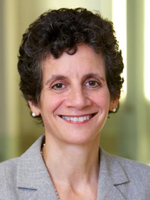
Sherry Glied, New York University
Connecting the Dots: Turning Research Evidence into Evidence for Policymaking
In 2013, Sherry Glied was named dean of New York University’s Robert F. Wagner Graduate School of Public Service.
Previously, she was professor and chair of health policy and management at Columbia University’s Mailman School of Public Health, assistant secretary for planning and evaluation at the Department of Health and Human Services, and senior economist for health care and labor market policy on the President’s Council of Economic Advisers. She also participated in the Clinton Health Care Task Force.
Glied has been elected to the National Academy of Medicine and National Academy of Social Insurance. She also served as a member of the Commission on Evidence-Based Policymaking. In 2021, the Association of University Programs in Health Administration selected her as the recipient of the William B. Graham Prize for Health Services Research.
Glied’s principal areas of research are in health policy reform and mental health care policy. She has published two books: Chronic Condition and Better But Not Well: Mental Health Policy in the US Since 1950. Additionally, she is co-editor of The Oxford Handbook of Health Economics.
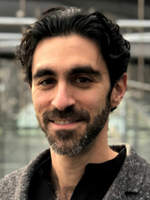
Ziad Obermeyer, University of California, Berkeley
Understanding Low-Value Health Care with Machine Learning
Ziad Obermeyer is associate professor and Blue Cross of California Distinguished Professor at UC Berkeley, where he does research and teaches at the intersection of machine learning and health. He is also a cofounder of Nightingale Open Science, a nonprofit that makes massive new medical imaging data sets available for research, and Dandelion, a platform for AI innovation in health. Finally, he is a Chan Zuckerberg Biohub investigator and a faculty research fellow at the National Bureau of Economic Research.
Obermeyer was named an Emerging Leader by the National Academy of Medicine. His papers appear in a wide range of journals—including Science, Nature Medicine, New England Journal of Medicine, JAMA, and ICML—and have won awards from professional societies in medicine and economics. His work on algorithmic bias is frequently cited in the public debate about artificial intelligence and in federal and state regulatory guidance and investigations.
He continues to practice emergency medicine in underserved communities.
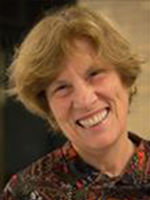
Arlene Ash, University of Massachusetts Chan Medical School
Arlene Ash is a professor and the division chief for biostatistics and health services research in the department of population and quantitative health sciences at the University of Massachusetts Chan Medical School and an internationally recognized methods expert in health services research.
She was a lead developer of DxCG models (which rely on diagnoses recorded in billing records) to summarize each person’s medical morbidity and guide payments that eliminate the penalty for caring for sick people—and the reward for avoiding them. This work formed the basis for the federal government’s hierarchical condition category models, used since 2000 to guide payments for the care of tens of millions of people. Examples include those enrolled in the Medicare Advantage program or insured through the federal Health Insurance Marketplace.
Ash’s more than 200 research publications reflect her longstanding interests in gender, age, and racial disparities and quality, equity, and efficiency in health care financing and delivery.
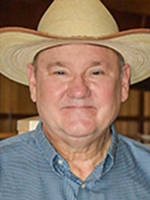
J. Chris Carey
J. Chris Carey completed an internship and residency in gynecology and obstetrics at the University of Oklahoma. He has served as a professor at the University of Oklahoma, professor at the Pennsylvania State University, chair of OB/GYN for Maricopa County Integrated Health System, residency program director for the Phoenix Integrated Residency Program, professor of clinical medicine at the University of Arizona, director of obstetrics and gynecology for Denver Health, and professor and associate dean at the University of Colorado. He also served as a special assistant for obstetrics in the National Institute of Child Health and Human Development Epidemiology, Statistics and Prevention Research Branch.
Carey has been married to his wife, Marsha Carey, for 48 years. He is currently retired and occupies his time losing money by breeding quarter horses.
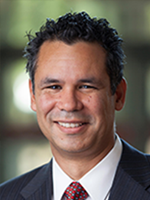
David Etzioni, Mayo Clinic in Arizona
David Etzioni is the chair of the department of surgery at the Mayo Clinic in Arizona and a professor in the Mayo Clinic College of Medicine. He is a graduate of the University of Pennsylvania School of Medicine (1999), and he completed his general surgical residency at the University of California at Los Angeles (2006). While a resident at UCLA, he completed a master’s degree in health services as part of a research fellowship funded through the Robert Wood Johnson Clinical Scholars Program. He subsequently completed his training in colon and rectal surgery through the University of Minnesota.
Etzioni’s clinical interests are wide-ranging and include colorectal cancer, inflammatory bowel disease, and the use of minimally invasive surgery. His research and administrative interests focus on the appropriate analysis, interpretation, and reporting of surgical outcomes data.

Amanda Jean Stevenson, US Census Bureau
Amanda Jean Stevenson is a sociologist trained in demographic and computer science methods. She studies the impacts of and responses to abortion and contraception policy and leads a team using massive administrative data at the US Census Bureau to evaluate the life course consequences of access to the full range of contraceptive methods. Stevenson also evaluates the effects of a variety of state-level reproductive health policies, including the maternal mortality consequences of banning legal induced abortion.

